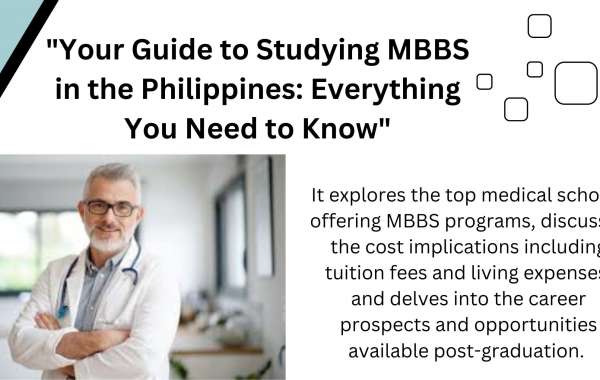Overview of the Curriculum
The curriculum at UV Gullas College of Medicine is designed to provide a robust foundation in medical sciences while integrating practical clinical experience. It follows an integrated approach, blending theoretical knowledge with hands-on training. The program is structured to ensure that students develop a deep understanding of medical concepts, critical thinking skills, and the ability to apply their knowledge in real-world scenarios.
Pre-Clinical Phase (Years 1 and 2)
Foundational Sciences: The initial phase of the medical program at UV Gullas College of Medicine focuses on building a strong foundation in basic medical sciences. Courses include Anatomy, Physiology, Biochemistry, and Microbiology. Students engage in lectures, laboratory work, and interactive sessions that help them grasp fundamental concepts and their applications in medicine.
Integrated Learning: The curriculum emphasizes an integrated learning approach, where subjects are interlinked to provide a cohesive understanding of human health and disease. For example, the study of physiology is often paired with relevant pathology and pharmacology, helping students see the connections between different areas of medicine.
Clinical Exposure: Even during the pre-clinical years, students begin their clinical exposure through early patient contact sessions. This allows them to apply their theoretical knowledge in practical settings, enhancing their understanding and preparing them for more advanced clinical training.
Clinical Phase (Years 3 and 4)
Clinical Rotations: The clinical phase of the program is designed to immerse students in various medical specialties through hands-on rotations. Students gain experience in fields such as Internal Medicine, Surgery, Pediatrics, Obstetrics and Gynecology, Psychiatry, and more. These rotations occur in affiliated hospitals and clinics, providing students with a diverse range of clinical experiences.
Case-Based Learning: In addition to traditional clinical rotations, the curriculum incorporates case-based learning. This approach involves analyzing real patient cases, which helps students develop diagnostic and problem-solving skills. Case-based learning promotes active engagement and critical thinking, essential for effective medical practice.
Elective Opportunities: Students have the option to choose elective rotations in specialized areas of interest. This flexibility allows them to explore specific fields, gain expertise, and tailor their education according to their career goals.
Research and Innovation
Research Integration: UV Gullas College of Medicine encourages students to participate in research activities. The curriculum includes opportunities for students to engage in medical research, contributing to advancements in healthcare and gaining valuable skills in evidence-based medicine.
Innovation in Medicine: The college emphasizes the importance of innovation and keeps abreast of the latest developments in medical science and technology. Students are exposed to cutting-edge practices and are encouraged to think creatively about improving patient care and medical practices.
Evaluation and Assessment
Continuous Assessment: The evaluation process at UV Gullas College of Medicine includes a combination of formative and summative assessments. Students undergo regular quizzes, practical exams, and presentations to gauge their understanding and progress. This continuous assessment approach helps in identifying areas that need improvement and ensures that students are consistently engaged with their studies.
Clinical Skills Assessment: Clinical skills are assessed through practical exams, Objective Structured Clinical Examinations (OSCEs), and direct observation during clinical rotations. These assessments are designed to evaluate students' competence in performing medical procedures, interacting with patients, and making clinical decisions.
Student Support and Resources
Academic Support: UV Gullas College of Medicine offers various support services to help students succeed. This includes academic advising, tutoring, and resources for self-directed learning. Students have access to a well-stocked library, online resources, and study groups to enhance their learning experience.
Clinical Skills Lab: The college features a state-of-the-art clinical skills lab where students can practice procedures, simulate patient interactions, and refine their skills in a controlled environment. This facility is essential for developing hands-on competence before entering real clinical settings.
Community Involvement
Community Medicine: The curriculum includes a focus on community medicine, emphasizing the importance of preventive care and public health. Students engage in community outreach programs, health education, and services to underserved populations, fostering a holistic understanding of healthcare delivery.
Global Health Perspectives: UV Gullas College of Medicine also incorporates global health perspectives into the curriculum. This exposure prepares students to work in diverse environments and understand healthcare issues on a global scale.
Conclusion
The curriculum and course structure at UV Gullas College of Medicine are meticulously designed to provide a well-rounded medical education. By integrating foundational sciences with clinical training, research opportunities, and community involvement, the college ensures that students are well-prepared for their medical careers. With a focus on both theoretical knowledge and practical skills, UV Gullas College of Medicine equips its graduates to excel in the ever-evolving field of medicine.
For those considering a medical education at UV Gullas College of Medicine, understanding this comprehensive curriculum can provide confidence in the quality and depth of the training they will receive.




